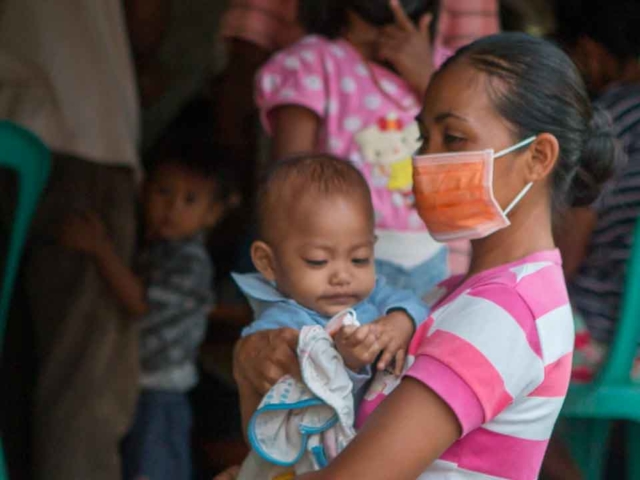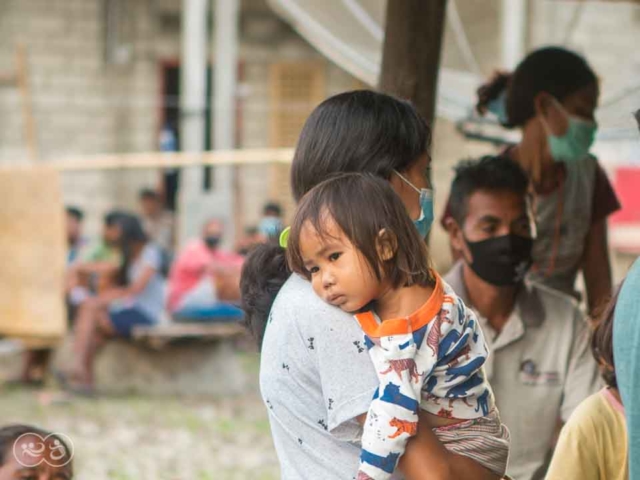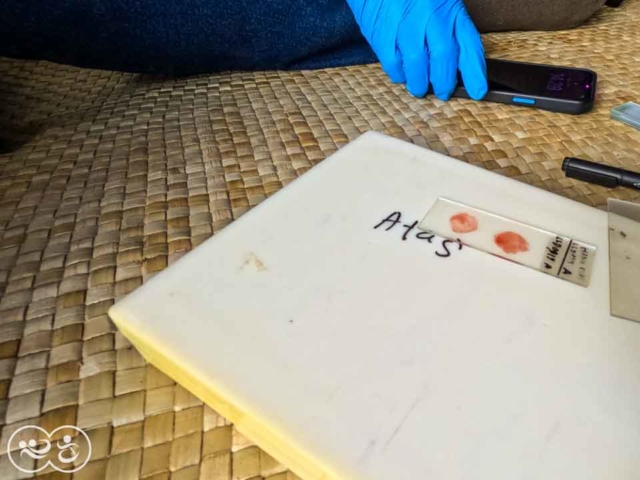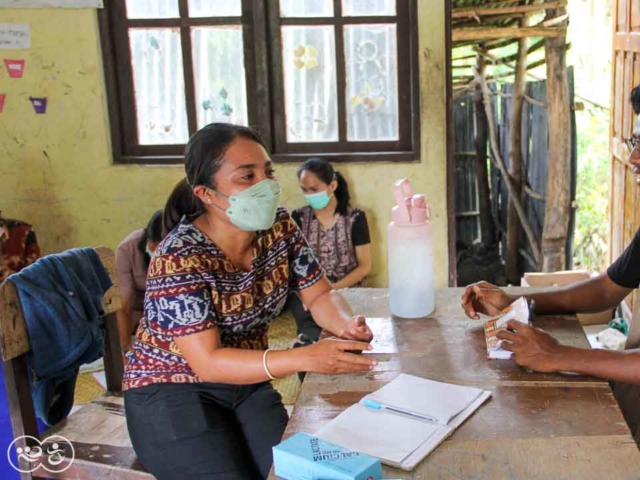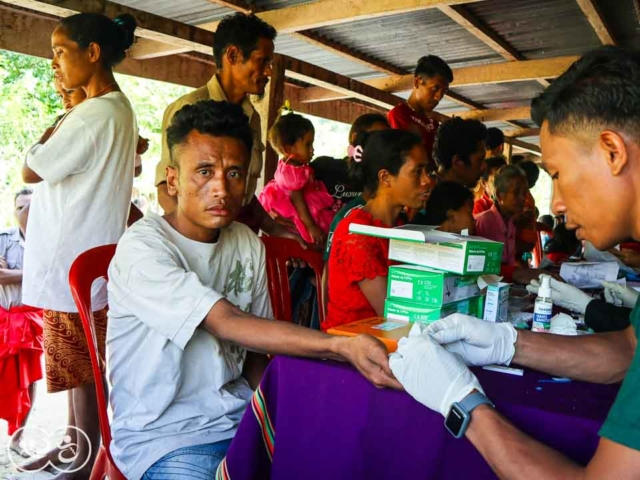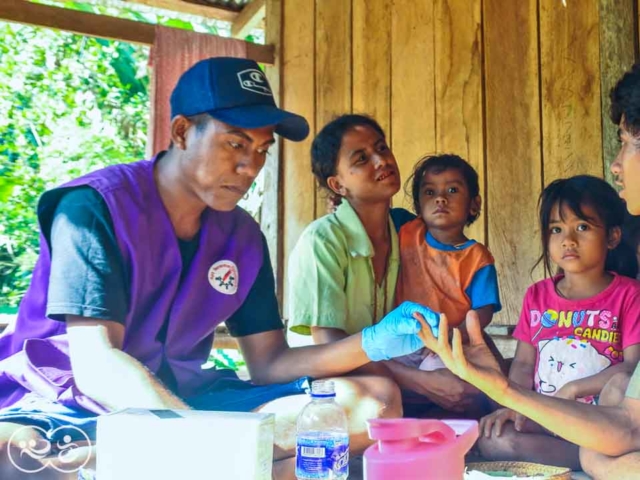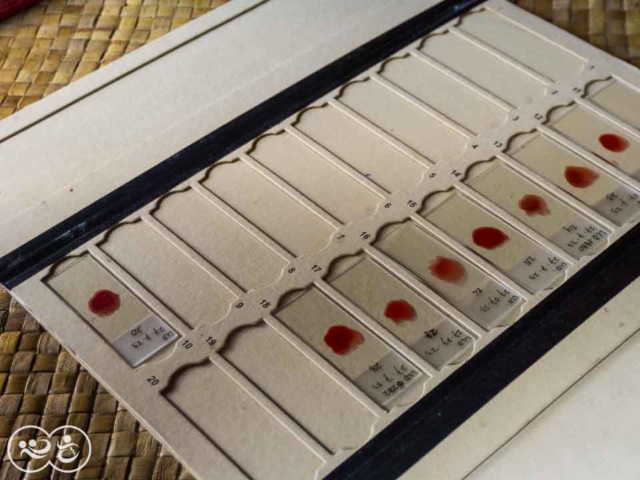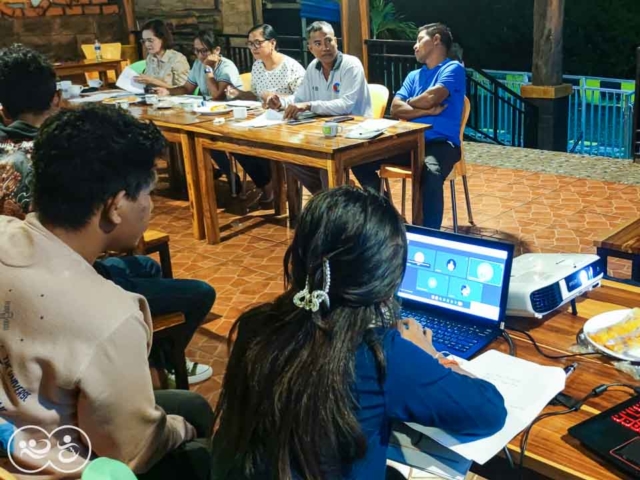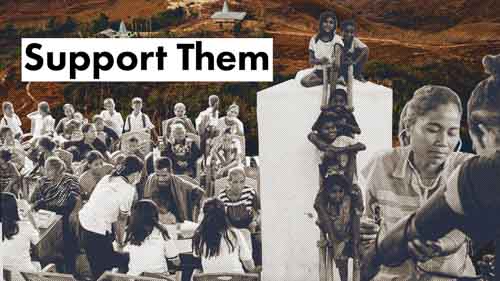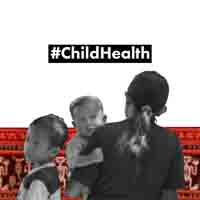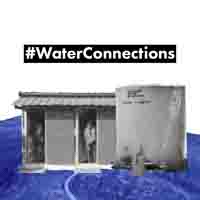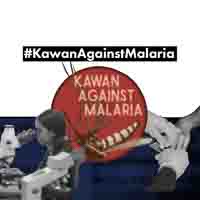Malaria remains one of the most devastating diseases affecting East Indonesia, with thousands of deaths occurring annually and implications for families, communities, and economies.
As we are doing here in Sumba Timur, improving access to clean water and healthy sanitation facilities helps significantly reduce the spread of malaria by limiting the habitats of mosquitoes. Mosquitoes need water to breed; if there is no standing water, if the water stays cool, stays out of the light and circulates, they cannot reproduce. In addition, adequate sanitation facilities reduce individuals’ exposure to disease-carrying mosquitoes.
In recent years, we have witnessed the malaria epidemic in East Sumba, an island in Indonesia where we have worked for almost five years. The outbreak is attributed to several factors, including a lack of access to healthcare, poor living conditions and the emergence of drug-resistant strains of the malaria parasite. The outbreak has particularly affected children under five and pregnant women at higher risk of severe illness or death from malaria.
Fair Future and all our friends are working to control the spread of the disease by providing primary medical care, advising families, providing solutions for clean water and healthy toilets, and of course, being present in the most affected villages. The Primary Health Care program has dealt with hundreds of Malaria cases, mostly children, for weeks. The health agents of this program -in their villages- deal with these cases. They give good advice and medicines to bring down the fever. They save lives, that’s for sure.
More efforts are needed to address the root causes of the outbreak, such as improving living conditions, improving access to clean water, and developing new control strategies against malaria.
Clean water, such as #waterconnections projects, actively participates in preventing the complications of malaria. People with malaria need to drink plenty of water to avoid dehydration, which can be difficult in areas where access to clean water is limited, as is the case in the regions where we are right now with the Fair Future and Kawan Baik teams.
In short, improving access to sanitation facilities and clean or safe water is, for all of us here -in the context of our medical care programs- an essential element in the fight against malaria. It will help reduce the spread of disease-carrying mosquitoes, prevent complications and improve the recovery of people with malaria. Fair Future Foundation, Kawan Baik Indonesia, and our friends from Sumba Volunteer fight the spread of #malaria by understanding how it is transmitted, providing primary medical care and access to clean, uncontaminated water sources and healthy sanitation through the Water Connections Program.
We desperately need antimalarial drugs and rapid tests* to detect the disease. You can help us by donating via the foundation’s website. Unicef and Unicef Indonesia? Are you ready to fight this epidemic with us? We are onsite, and we need you.
*Malaria screening is essential in rural areas to detect and treat cases early, prevent the spread of the disease and reduce the incidence of serious complications.
#StopMalaria #EndMalaria #Malaria #InfectiousDiseases #MalariaIndonesia #NTT #SumbaTimur #CleanWater #healthySanitation #MedicalWater #HealthyLife #UnicefIndonesia
Malaria Epidemic in East Sumba in a few pictures
Malaria remains one of the most devastating diseases affecting East Indonesia, with thousands of deaths occurring annually and implications for families, communities, and economies.
As we are doing here in Sumba Timur, improving access to clean water and healthy sanitation facilities helps significantly reduce the spread of malaria by limiting the habitats of mosquitoes. Mosquitoes need water to breed; if there is no standing water, if the water stays cool, stays out of the light and circulates, they cannot reproduce. In addition, adequate sanitation facilities reduce individuals’ exposure to disease-carrying mosquitoes.
Clean water, such as #waterconnections projects, actively participates in preventing the complications of malaria. People with malaria need to drink plenty of water to avoid dehydration, which can be difficult in areas where access to clean water is limited, as is the case in the regions where we are right now with the @fairfuturefoundation and @kawanbaikindonesia teams.
In short, improving access to sanitation facilities and clean or safe water is, for all of us here -in the context of our medical care programs- an essential element in the fight against malaria. It will help reduce the spread of disease-carrying mosquitoes, prevent complications and improve the recovery of people with malaria. We fight the spread of #malaria by understanding how it is transmitted, providing primary medical care and providing access to clean, uncontaminated water sources. We desperately need antimalarial drugs and rapid tests to detect the disease. You can help us by donating via the foundation’s website. @unicef and @unicefindonesia? Are you ready to fight this epidemic with us? We are onsite, and we need you.



